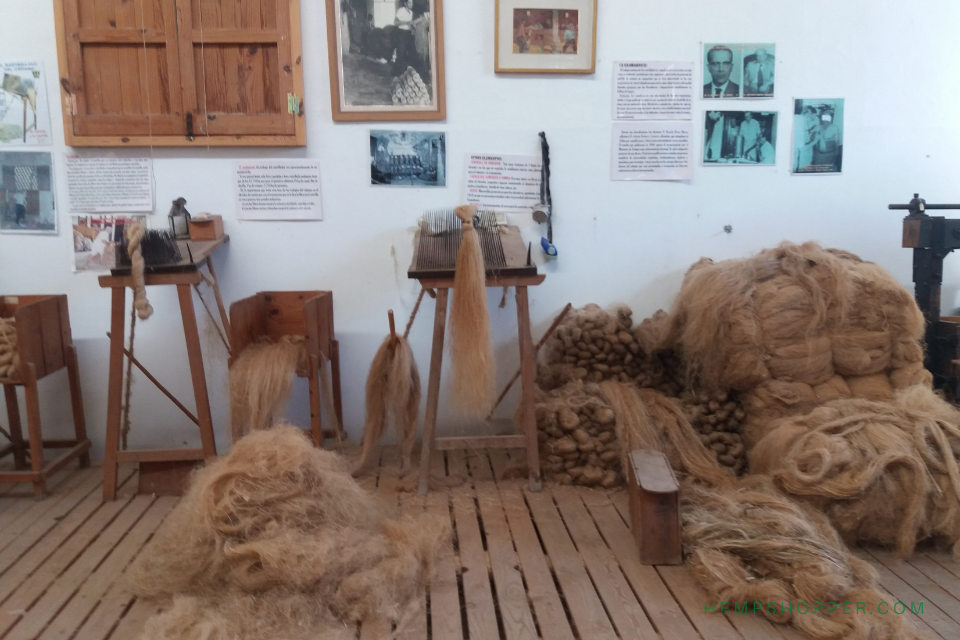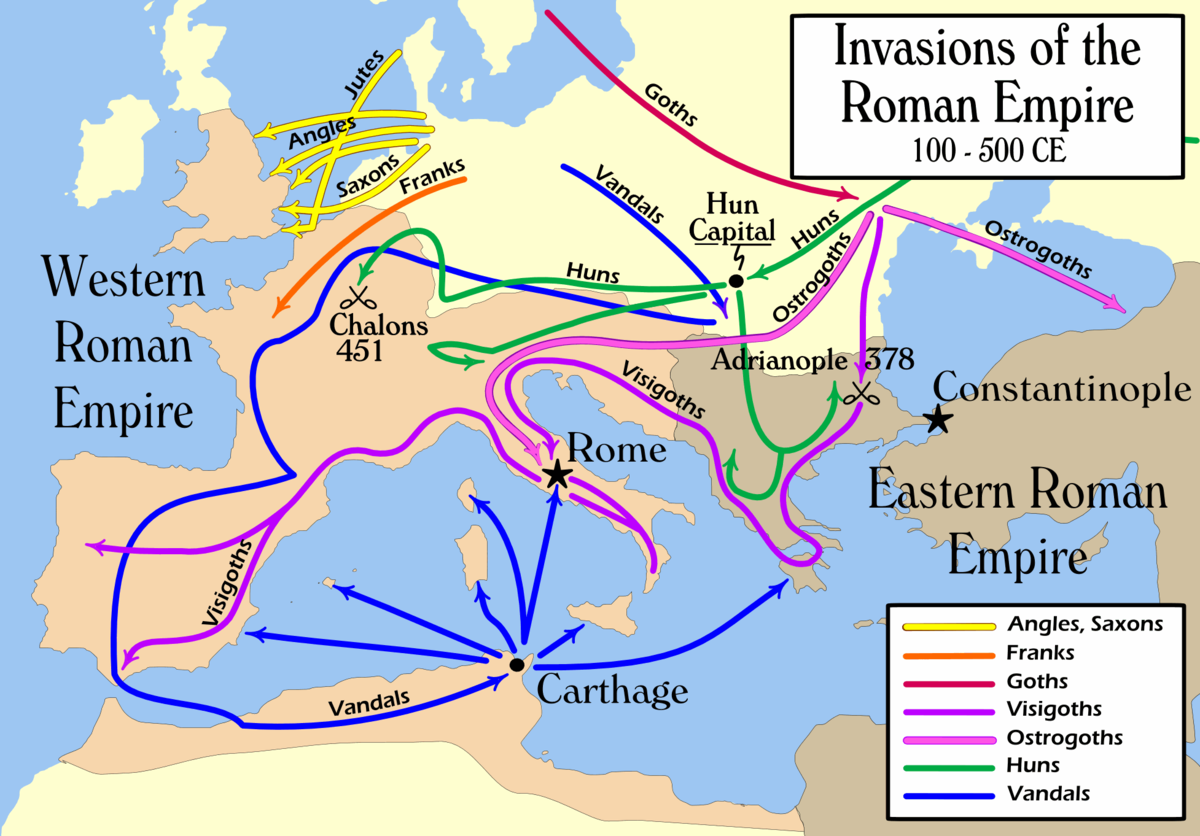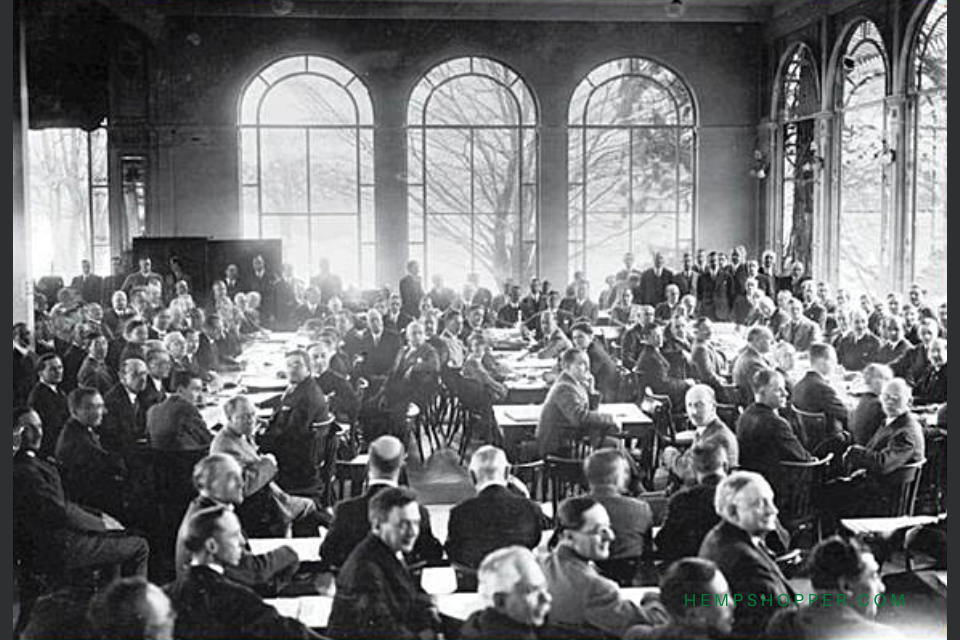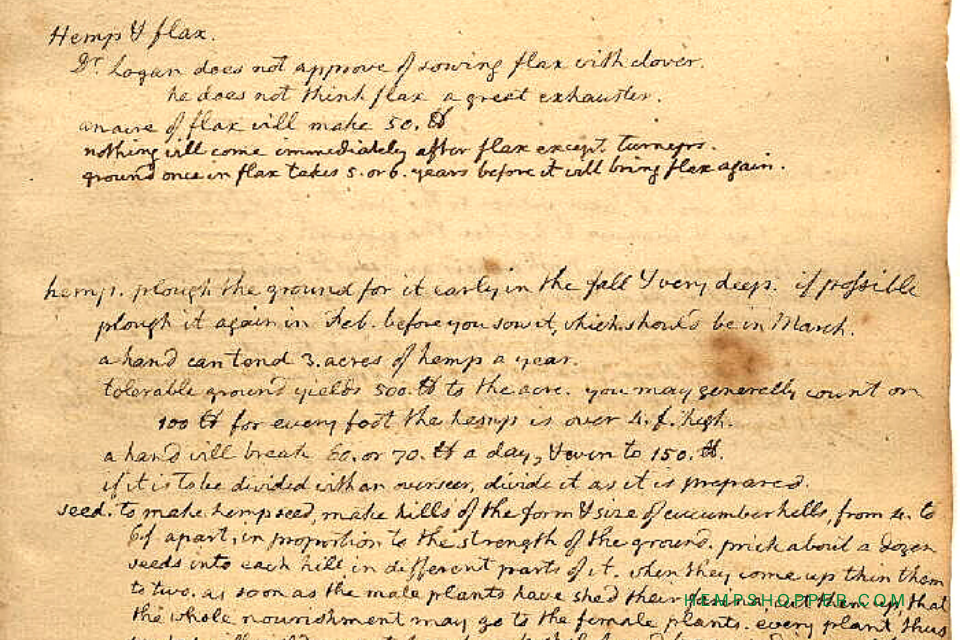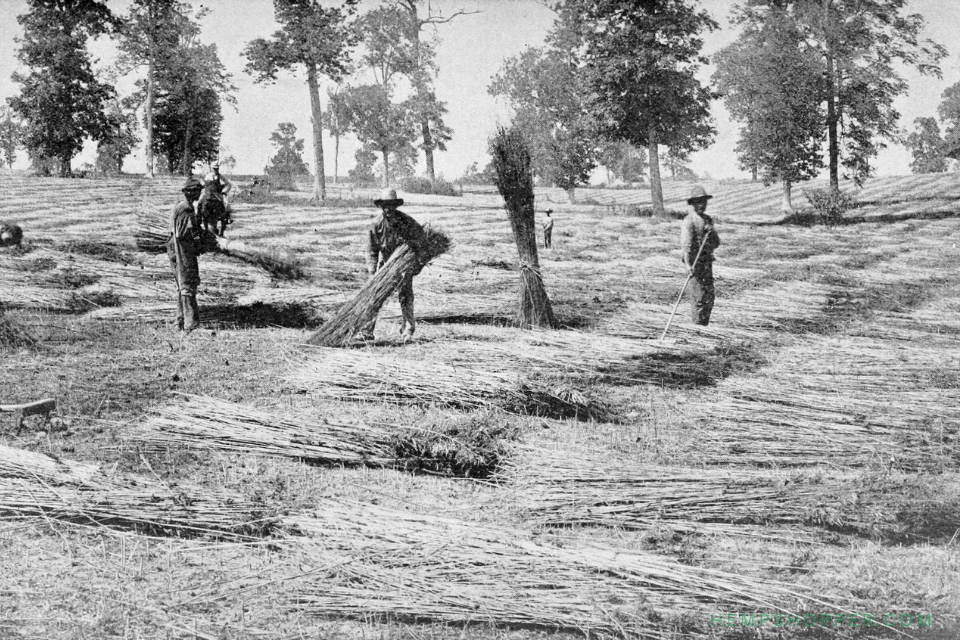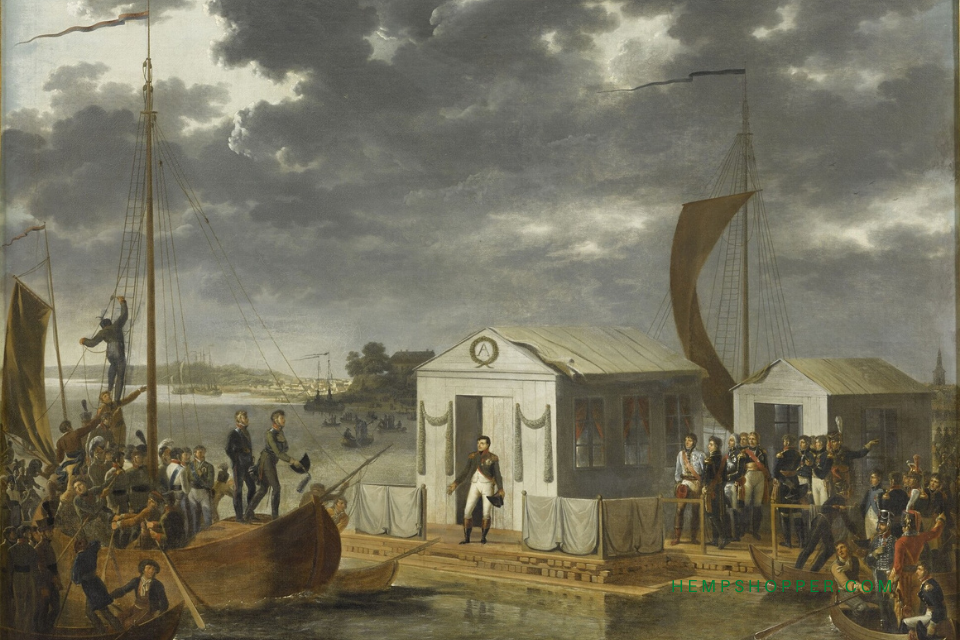1812: Cannabis caught in wars between the superpowers

From 1807 till 1812 the Americans played a big role in the illegal Russian hemp trade with England. The Americans regarded themselves as neutral but Great Britain saw every ship that traded with Napoleon’s France or one of his allies as an enemy that needed to be obstructed.Therefore Britain confiscated American ships and shipment and sent their sailors back to the U.S at the American ship owners’ cost.
After an American ship got captured England offered the American traders a deal: lose your ship and shipment, or go to Russia and buy hemp for Britain.[1]
They paid the American traders gold in advance, and more when the hemp had come in. And at the same time, the Americans were still allowed to keep hemp to bring back to the U.S. and trade their own goods (rum, sugar, spices, cotton, coffee, tobacco) with Russia which meant a double profit for the American traders. The American Consul at St. Petersburg John Quincy Adams (later to become President), noted in 1809:
“As many as 600 clipper ships, flying the American flag, in a two-week period, were in Kronstadt” the Port of St. Petersburg where they mainly loaded hemp for England and America, where there is also a big need for quality hemp.[2]
When in 1809 the Czar withdraws Russia from that part of the Treaties of Tilset that would require him to stop trading to neutral American ships, Britain becomes a full trading partner again but is still stopping American ships from trading with the rest of the European continent and is still forcing American traders to buy strategic goods from Napoleon’s allies.[3]
On June 18, 1812 the United States congress decides the Americans go to war with Great Britain for several reasons. In 1812 the United States is cut off from 80% of its Russian hemp supply. American ships could pick up hemp from Russia and return with it to the East coast three times faster and cheaper than they could get it from Kentucky or other states over land. The Americans are fed up with Great Britain obstructing their trade: the trade restrictions due to Britain’s ongoing war with Napoleon’s France and the impressment of American merchant sailors into the Royal Navy, lead them to declare war. [1]
America enters the war on the side of Napoleon, who marches on Moscow a few days later.
On June 24, 1812 Napoleon and his Grande Armee invades Russia. Napoleon aimed to compel Emperor of Russia Alexander I to remain in the Continental Blockade of the United Kingdom. The illegal Russian hemp trade with Britain was first condoned by Csar Alexander I. Later on in 1811 Napoleon ordered the Czar to stop all trade with the American traders and the Czar responded by withdrawing Russia from a part of the Treaties of Tillsit. [1]Napoleon wanted to put an end to this and let Russia and other country’s in the alliance abide by the 5 years earlier signed Treaties of Tilsit which tried to isolate England from international trade. An official aim for the Russian invasion was to remove the threat of a Russian invasion of Poland.
1. HERER, Jack (1985): The Emperor Wears No Clothes. Ah Ha Publishing, Van Nuys, CA. 2. BEMIS, Samuel (1949): John Q. Adams and the American Foreign Policy. Alfred A Knopf, New York 3. CROSBY, Alfred W. Jr (1965): America, Russia, Hemp and Napoleon: American Trade with the Baltic, 1783-1812. Columbus, Ohio State University Press, pp. 19-22. Photo: Panoramic view of Neva downstream by John Augustus Atkinson (1775-ca. 1833). At Hermitage Museum ( hermitagemuseum.org ) of Saint Petersburg Research and text © Hempshopper Amsterdam.

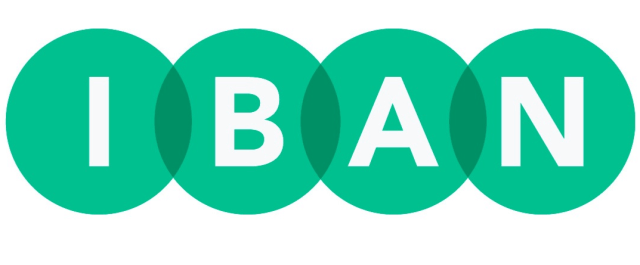
 Hempshopper Amsterdam
Hempshopper Amsterdam 